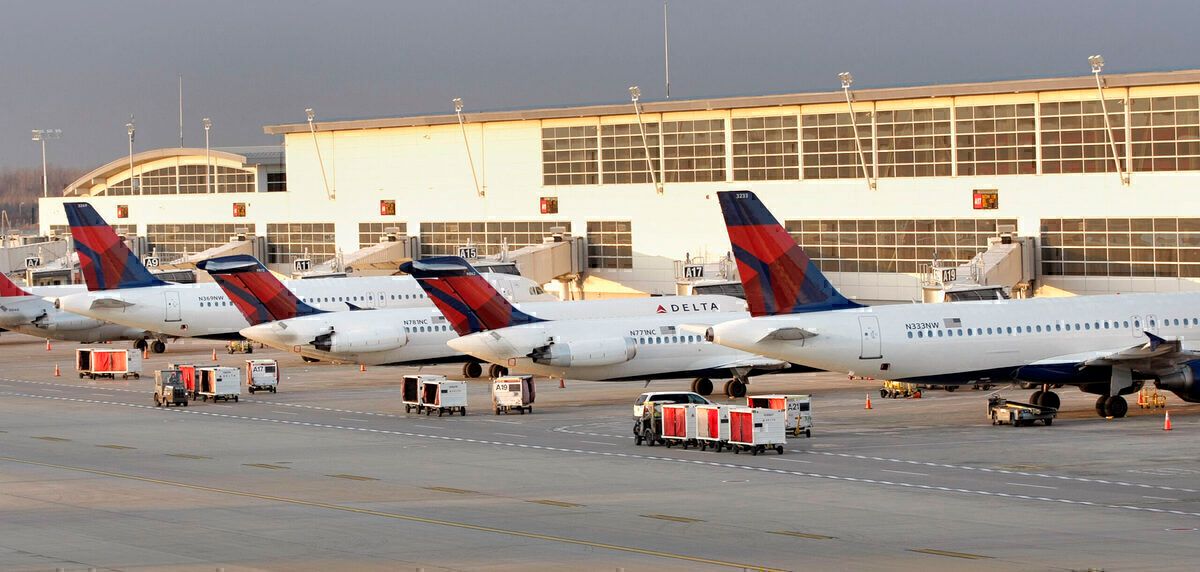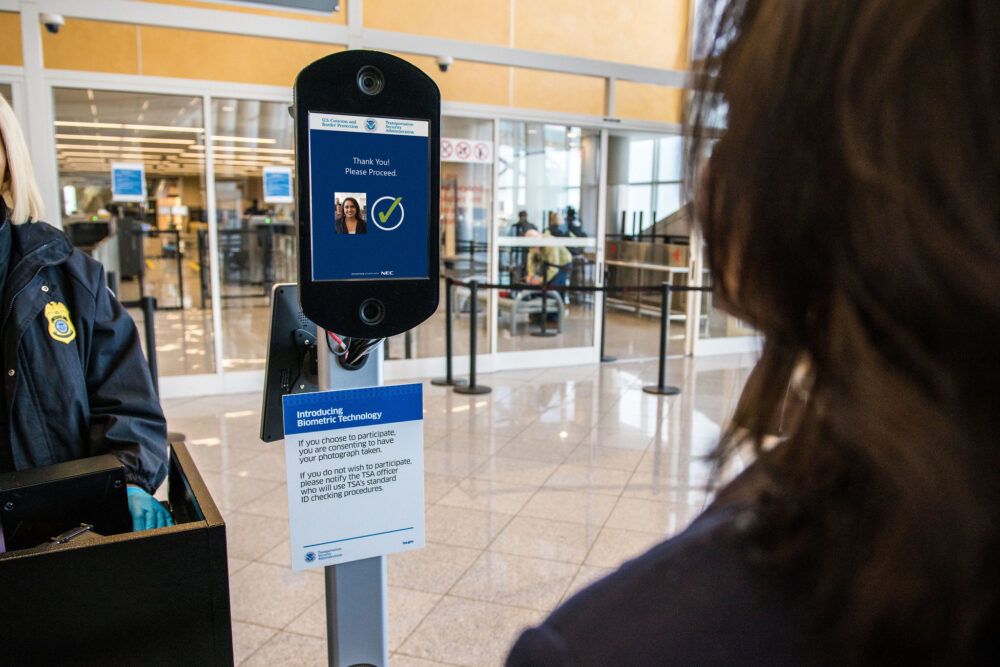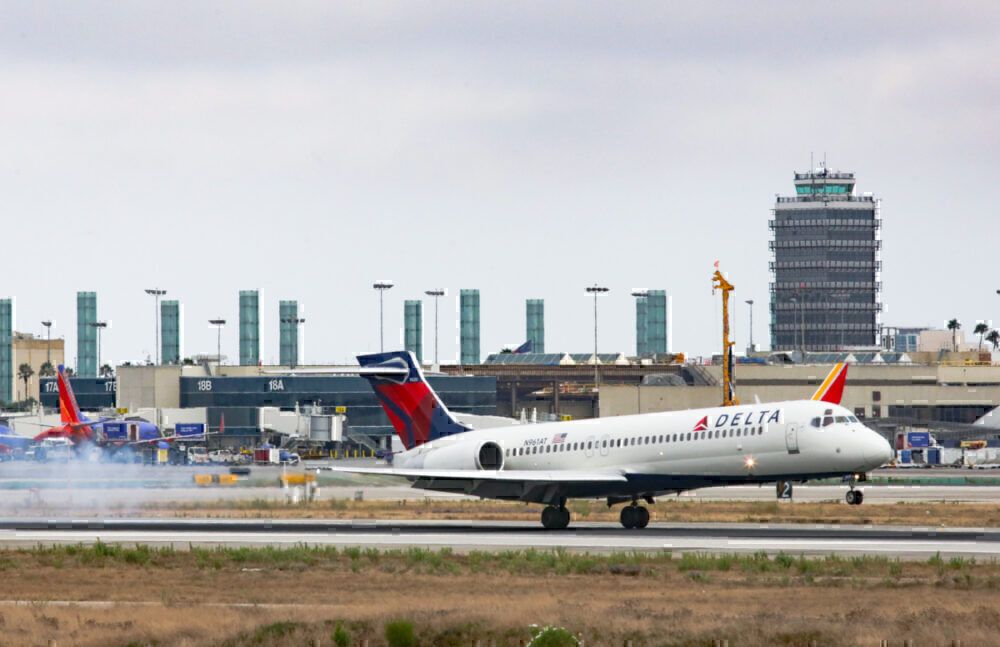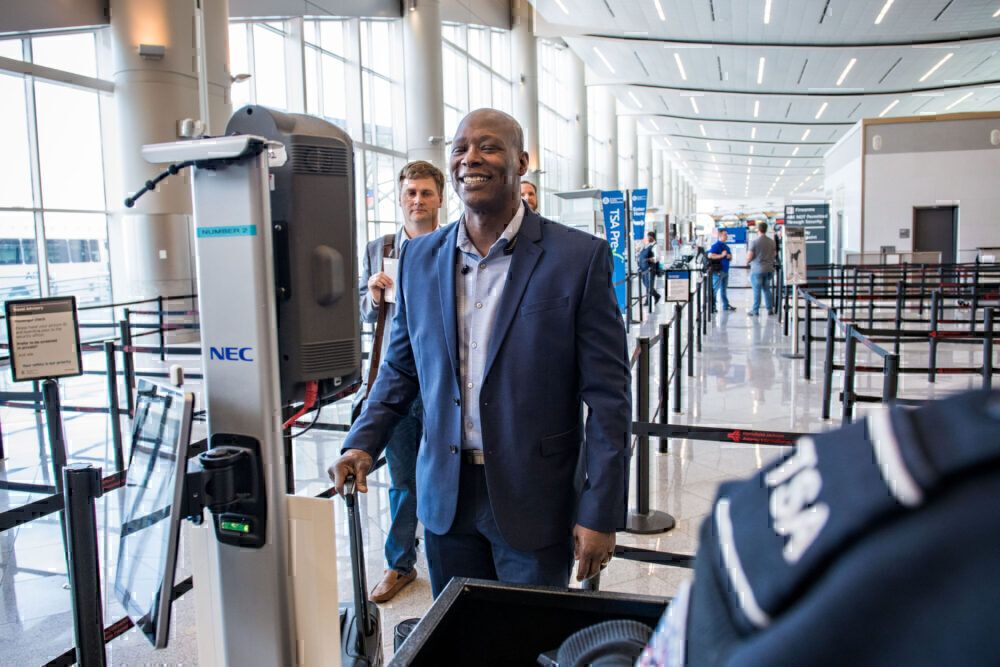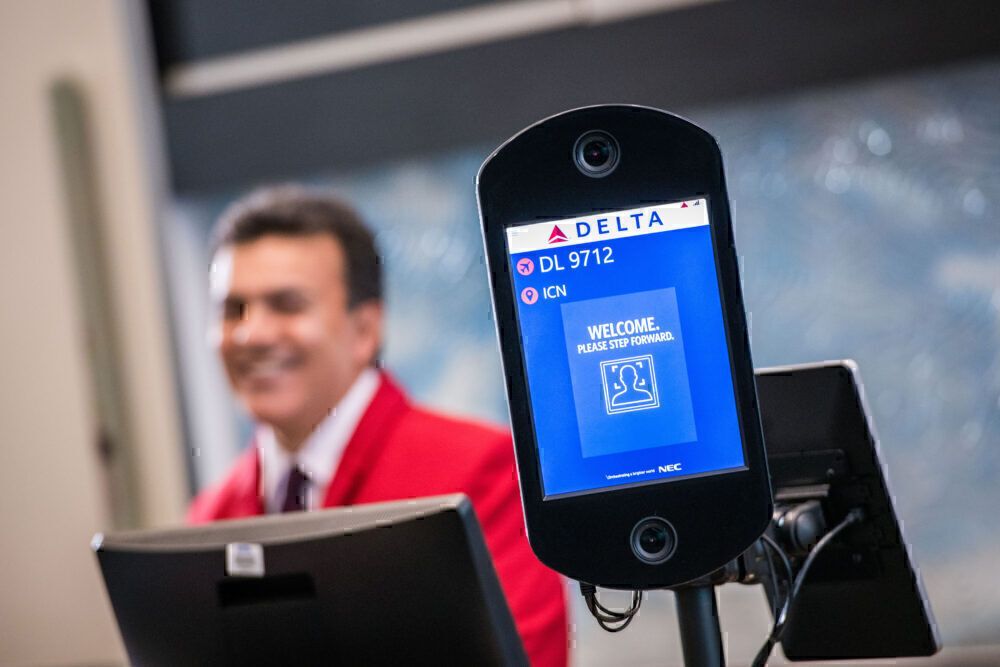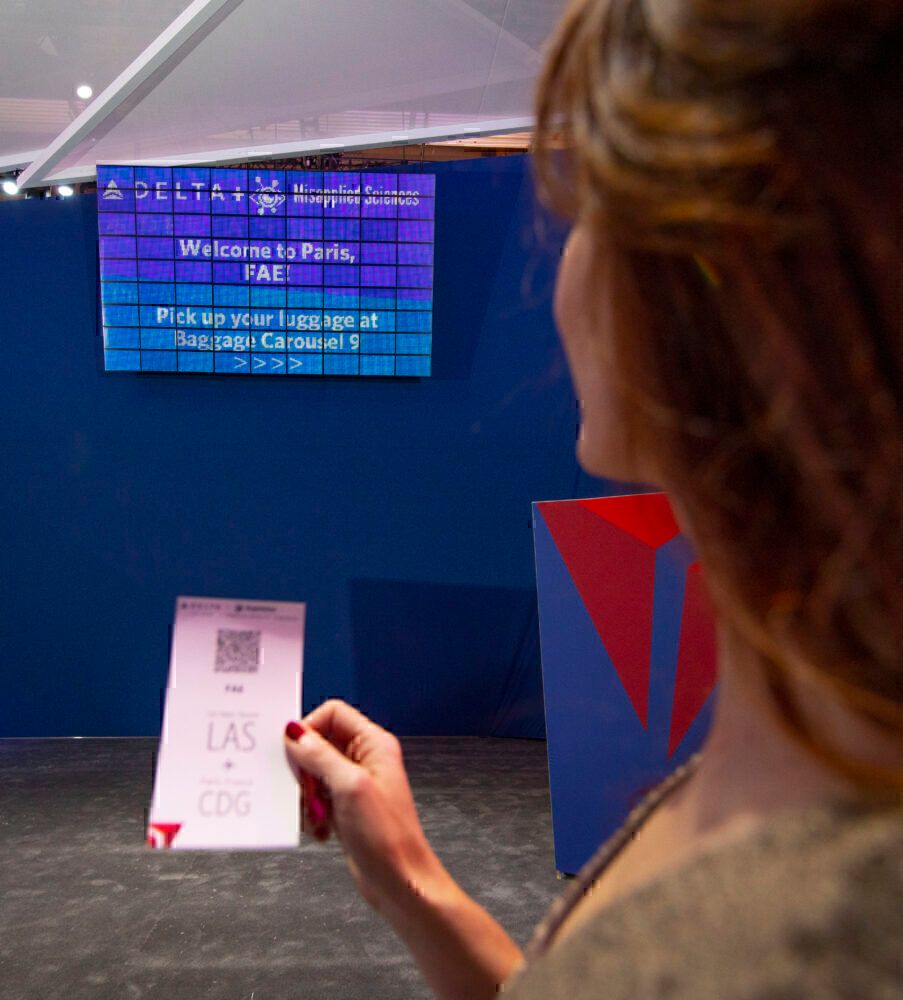2020 was Delta's year for technology. The airline started the year off strong with some major tech announcements at the Consumer Electronics Show in Las Vegas back in January. Despite the ongoing crisis, Delta has continued to invest in new technology. Coming soon to the airline's Detroit hub will be a facial recognition option for customers traveling domestically.
Facial recognition for domestic travelers
The airline is launching a new facial recognition experience for passengers flying out of Detroit Metropolitan Wayne County Airport (DTW). The airline states it will be the first to offer domestic travelers a digital ID, made up of a customer's passport number and TSA PreCheck membership.
The facial recognition technology will get a passenger through security. Starting next month, it will be available at the TSA PreCheck domestic checkpoint at the McNamara Terminal.
From early 2021, the plan is to grow that to bag drop and boarding. Once that goes in effect, for passengers with TSA PreCheck flying domestically, Detroit will be the first airport to have a completely touchless, facial recognition platform from the curb to the gate.
Bill Lentsch, Delta's Chief Customer Experience Officer, stated the following:
“When it comes to pulling forward the future of Delta’s customer experience, we think big, start small and scale fast, letting innovation lead the way as we continuously listen to customer feedback. The COVID-19 pandemic has only deepened the importance of providing a touchless experience for our customers. We plan to expand curb-to-gate facial recognition and digital ID beyond the Detroit test so that all of our customers can enjoy a seamless, touchless travel experience across our network.”
The process is opt-in. So, if you do not wish to use the facial recognition technology, you can select the "opt out" choice and enter through the airport as normal. Delta does not save biometric data, nor is Delta planning to save such information.
Detroit is a great hub for Delta to try this in. Even though it has a massive hub, most passengers in Detroit are connecting passengers, so the pool of travelers originating in Detroit is a bit smaller. Combined with the fact that an even smaller pool will have TSA PreCheck and another smaller pool would take part in the test, Delta has the ideal conditions to test this out. At a major hub, the airline can test this out on passengers heading to a wide variety of domestic destinations while also keeping their sample size manageable.
How will this work for passengers?
Delta passengers will need to store their passport information and TSA PreCheck Known Traveler Number in their SkyMiles profile. Then, when checking in for your flight, use the Fly Delta app to opt into the program. Then, at the airport, you will just have to look into the camera at bag drop, the security checkpoint, and the boarding gate. This digital identity takes the place of a physical ID and boarding pass.
Delta has noted that once a passenger reaches a camera at the airport, their image is encrypted, stripped of biographic information, and then sent to the US Customs and Border Protection (CBP) facial biometrical matching service via a secure channel. CBP will then verify a customer's identity against the CBP image gallery. Once a customer's identity is confirmed, the computer will allow the passenger to proceed with their journey.
Passengers will not need to hand over their ID or their boarding pass to either a customer service agent or a TSA member.
This is nothing new for Delta
Delta launched the first biometric terminal in the US in December 2018. This was in the airline's largest hub at Hartsfield-Jackson International Airport in Atlanta at the Maynard H. Jackson International Terminal and Concourse F. Note that this option is only available to international passengers now.
Additional facial recognition expansions continue to eight new markets over the next year. In December of 2019, facial recognition technology expanded to more customers in Atlanta, Minneapolis, and Salt Lake City. Before that, Seattle got facial recognition technology, as did Los Angeles.
Delta's Detroit hub is a center for technology
Delta started the year off strong at the Consumer Electronics Show in Las Vegas. At a keynote address, CEO Ed Bastian stated the following:
"We see technology as a tool to further our mission of connecting people and creating opportunities. We’re not chasing shiny objects or tech for the sake of being cool. We are dedicated to solving your travel problems and making your voyages – and your lives – easier."
One of the most impressive announcements was the launch of "Parallel Reality". This wholly digital experience was set to launch in Detroit first. The technology tailors a passenger's screen information. Essentially, it uses biometrics to recognize passengers, and a screen will only show travel information to them that is unique to them in a language of their choice.
Delta is also working on launching new suits for the airline's employees so they can lift baggage without strain or fatigue for longer hours.
Are you going to opt into Delta's facial recognition trial departing Detroit? Let us know in the comments!

